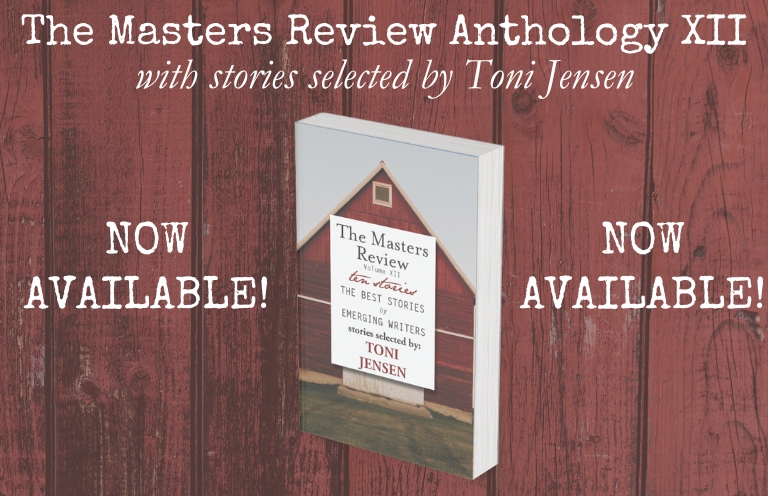Volume XII of our annual anthology is now available for purchase at Bookshop.org, Barnes & Noble, and Amazon! Be sure to order your copy of this new anthology, with stories and essays selected by Toni Jensen, and then submit your own work to our Best Emerging Writers anthology—volume XIII of our favorite project. You can find all the details for the contest here or order Volume XII at the links here. As a bonus, we’re sharing Toni Jensen’s introduction to Volume XII below!

When I teach creative writing courses or do editorial work, like judging, for journals and anthologies, I’m often asked what I’m looking for in a short story or an essay. The person presumably seeks an indication of aesthetics, tastes, preferences in subject matter. I’ve given the matter a fair amount of thought, then, but I return, each time, to a fairly simple answer, one I’m sure makes me seem difficult or mercurial. My answer is: surprise me.
It’s my best, genuine response to the question of what draws me to stories, what I value in essays, what moves me the most while reading in any genre, the element of surprise. The stories and essays I’ve chosen to be included in this year’s anthology of The Masters Review all do this—offer surprise upon surprise—in language and imagery, in narrative and voice. Each of the ten pieces in this anthology elicits a sense of surprise or wonder, a giggle or gasp. Each tells a complete and riveting story. Each has mastered the art of pushing its characters and language away from the expected or mundane.
Yet life’s mundanity is explored in these pieces as often as is the extraordinary. There’s a trick to doing this, of course, making common or collectively held experiences both familiar and strange. All the pieces in this anthology offer us this dual gift of recognition and surprise.
In some of these stories, the elements of surprise are multitiered or layered. In “The Wedding Dress,” a bride redefines the rituals of the night before a wedding, and the surprises come through both the language and the plot. In “The Swan,” the delicate balancing of the conflict during two teenagers’ budding friendship offers a surprise when the plot takes a turn, and the tensions also build throughout the story through the place descriptions and other fine details. “An Afternoon at the Edge of the World” features wonderful strangeness in its location, but the emotional layers of the story offer additional surprises. In “Beyond Reproach,” situational conflict provides surprises, but also throughout the story, the decisions of the middle class, middle-aged characters surprise both readers and themselves. “Sow” offers a narrative that uses evocative language alongside the act of growing plants to stand in for so many other complexities of emotion and relationship. “Spider Tim” combines a strong and startling narrative voice and a fascinating setting to move readers toward an unexpected emotional turn.
It’s often the emotional turn at the end of a story that provides the largest surprise. In some of these stories, the elements of surprise are woven throughout expertly so that the ending provides the rare pleasure of an inevitable surprise. “Young Again” is one such story, focusing on the relationship between a teenager and his grandfather. “Model Home” is another, providing an unexpected unfolding of an affair. In “Good Daughter,” a farmer’s daughter cares for ill family members and must decide what kind of life she wants for herself. “Stillborn” puts forward the story of a family working the peppermint fields, and the main character’s language at the end of the story is what provides the compelling turn toward surprise.
I enjoyed reading all the submissions for this year’s Masters Review anthology, so picking these ten was an enjoyable but also difficult task. The ten stories and essays offered here hold a wide range of subject matter and place, characters’ voices, and conflict upon conflict. They also all use language impeccably. They will surprise you in all the best ways.
Toni Jensen
